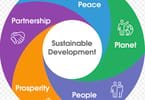A team of researchers from the Hebrew University has developed a treatment that completely destroys HIV-infected human cells in laboratory cultures, according to an article published last month in the scientific journal AIDS Research and Therapy.
The therapy, developed by scientists from the university’s Alexander Silberman Institute of Life Sciences and the Institute of Chemistry, destroys cells infected with HIV without damaging adjacent healthy cells.
There has so far been no therapy that completely destroys HIV-infected cells.
Current treatments involve inhibiting the replication of the virus, which delays the development of AIDS, making AIDS a chronic, yet managed disease. But if treatment with the so-called AIDS “cocktail” is halted or the virus develops immunity to the cocktail, it can begin infecting other cells again.
The new treatment is based on the fact that when the virus infects a cell, its DNA penetrates the cell, which then manufactures new HIV viruses that infect neighboring cells.
The journal reported: A correlation between increase in the integration of Human Immunodeficiency virus-1 (HIV-1) cDNA and cell death was previously established. Here we show that combination of peptides that stimulate integration together with the protease inhibitor Ro 31-8959 caused apoptotic cell death of HIV infected cells with total extermination of the virus. This combination did not have any effect on non-infected cells. Thus it appears that cell death is promoted only in the infected cells. It is our view that the results described in this work suggest a novel approach to specifically promote death of HIV-1 infected cells and thus may eventually be developed into a new and general anti-viral therapy.
The full report is available as a PDF
http://www.aidsrestherapy.com/content/pdf/1742-6405-7-31.pdf
“In the usual process the HIV virus injects a maximum of two replications of its genetic material into healthy cells,” said Dr. Abraham Loyter, of the life sciences institute. Loyter, who carried out the research together with Prof. Assaf Friedler, Dr. Aviad Levin and Dr. Zvi Hayouka, explained that peptides, or segments of short proteins, which they developed, interfere with replication and transmit a massive number of replications of the genetic material into the infected cell, triggering the cell’s self-destruction.
“The usual medications kill the virus that has entered the body during infection, and the [peptide] treatment allows cells infected with the genetic load of the virus to be killed,” Loyter said.
When the treatment was applied to human cell cultures, in the laboratories of the Hebrew University campus in Givat Ram in Jerusalem, it caused the infected human cells to disappear within two weeks. The cells did not reappear in the culture for another two weeks, “so it can be concluded that they were destroyed,” Loyter said.
The study examined the effectiveness of the new treatment on the HIV-1 virus, which is the predominant cause of AIDS in developing nations.
The researchers registered a patent this year on their therapy through Yissum, the Hebrew University’s technology transfer body. Yissum is now seeking a commercial partner to continue developing the treatment ahead of the next phase of experimentation, on animals, and later, if its efficacy is proven, on humans.
An estimated 33.4 million people worldwide are carriers of HIV. In Israel, in 2008, 390 new cases were reported, the highest figure in a decade.
The current breakthrough joins other new therapies to fight AIDS. Last year, health authorities in Thailand reported encouraging preliminary results of a U.S.-funded study on humans of a vaccination against AIDS that reduced the chances of infection by a third.
Six weeks ago, researchers in South Africa reported the development of a vaginal gel that prevents replication of the virus and reduces the risk of HIV infection by 54 percent.
WHAT TO TAKE AWAY FROM THIS ARTICLE:
- When the treatment was applied to human cell cultures, in the laboratories of the Hebrew University campus in Givat Ram in Jerusalem, it caused the infected human cells to disappear within two weeks.
- It is our view that the results described in this work suggest a novel approach to specifically promote death of HIV-1 infected cells and thus may eventually be developed into a new and general anti-viral therapy.
- The new treatment is based on the fact that when the virus infects a cell, its DNA penetrates the cell, which then manufactures new HIV viruses that infect neighboring cells.






















